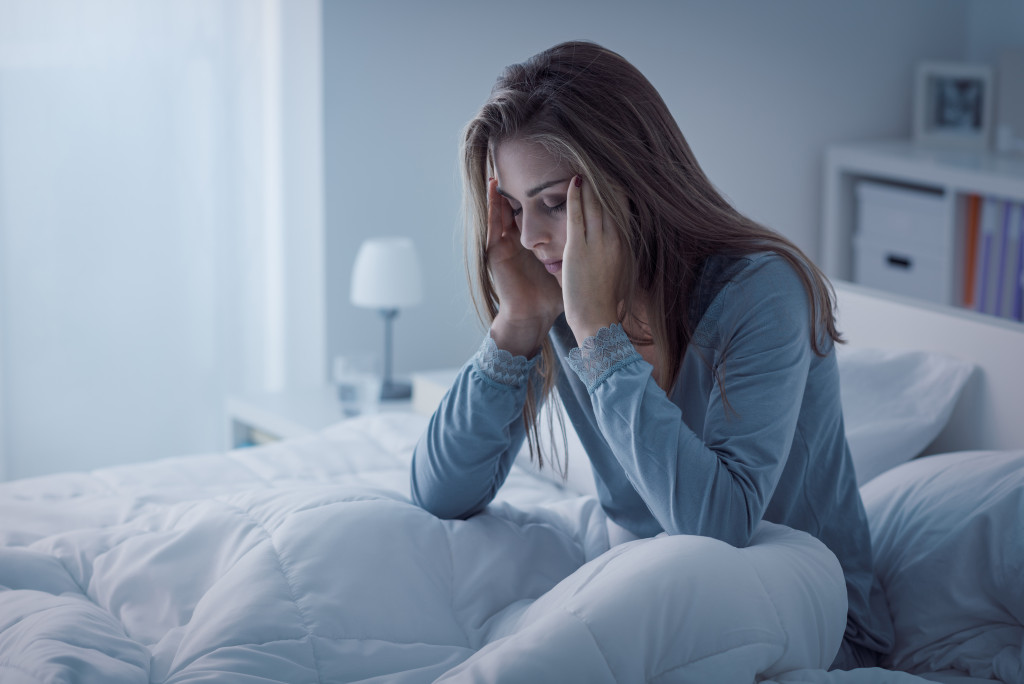The global pandemic has affected our lives in multiple ways during the past year. One of them being an increase in sleep problems. More than half of Americans have developed a form of sleeping issue recently, according to a survey conducted by the American Academy of Sleep Medicine.
There are several causes for these but, thankfully, there are even more things you can do about them. Here are the reasons for your insomnia as well as some tips and sleep products recommended by people, influencers, and a PR agency New York.
Defining Insomnia
Before going on to causes and remedies, let’s define what insomnia is.
Insomnia is a disorder where you repeatedly have difficulty with falling asleep, staying asleep, and having a good night’s sleep. You also often wake up tired despite getting hours of slumber the night before.
It is also important to note that there are three types of insomnia. The type depends on how long your insomnia lasts.
- Transient – lasts less than a week
- Acute – lasts up to a month
- Chronic – lasts for more than a month
Causes and Remedies
Having Too Much Coffee
For a lot of people, coffee is an essential drink to get through the day. It’s the kick you need to wake up in the morning and keep yourself energized. However, when you drink it daily, you tend to build up a tolerance towards its effects.
When you start to get sleepy again, you reach out for another cup of joe. As this cycle continues, our coffee intake increases and that is when it starts having an effect on our body clock.
It may even get to a point where you don’t feel its vitalizing effects. Instead, you only feel sleepy. This is a telltale sign that you are sleep-deprived from caffeine overuse and dependence.
What You Can Do
Caffeine usually lasts for six hours, so when its effect wears off, it’s tempting to make another cup of coffee. However, you might want to reconsider getting that next cup.
Research has shown that drinking coffee after 2 P.M. or seven hours before bedtime is not advisable.
The reason for this is a compound called adenosine. Adenosine is a byproduct of neuron activity. Adenosine levels in the brain are always monitored by the nervous system. When the levels drop at a specific point in the brain and spinal column, the body gets ready for sleep.
Now, when you drink coffee within the six-hour window before sleeping, caffeine will seek out these adenosine receptors and mimic its effects, tricking your body into staying awake.
Alternatively, you can also switch out coffee for green tea. It has half the amount of caffeine as coffee and comes with multiple benefits like:
- Hydrating your body and replenishing fluid intake
- Having tons of antioxidants
- Strengthening your immune system

Having Constant Stressors
There are situations or concerns that keep our minds active at night. Common causes include:
- Exams
- Relationship problems
- Work deadlines
- A big change like a new job
- Passing of a loved one
Whether it’s about school, work, health, or even traumatizing events, the stress from these parts of life may lead to insomnia.
What You Can Do
Understandably, these stressful situations can bring anxiety and depression, making it hard to get some z’s. If you find yourself in this situation, try weighted blankets.
Research has shown that a weighted blanket puts pleasant pressure on the body. This pressure then releases serotonin and calms the nervous system, helping you fall asleep faster.
The science behind this is that weighted blankets replicate the concept of deep pressure stimulation. It’s a therapeutic technique that uses hands-on pressure to relax slow down and signal the nervous system to relax. Also, it brings many benefits including pain relief.
There are many weighted blanks available today, so take a look at this list to know where to start and what to look for. It is also important to note that most people have said that they were most comfortable with a blanket that was 10% of their body weight.
Go See A Doctor
If none of these recommendations work, consult with a professional. Sleep deprivation will make it incredibly difficult to function.
Worse, it may lead to serious health consequences, like increased chances of having long-term disorders including high blood pressure or heart disease
A doctor will be more thorough with pinpointing the root of your insomnia. If they think it might be a disorder, they will refer you to a specialist or a sleep center for testing.

